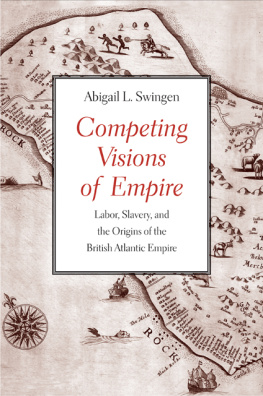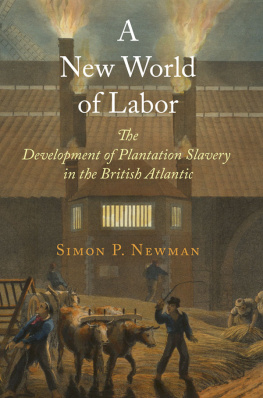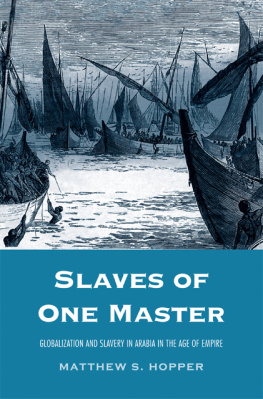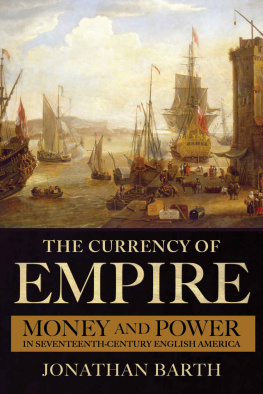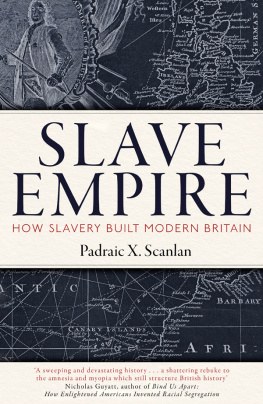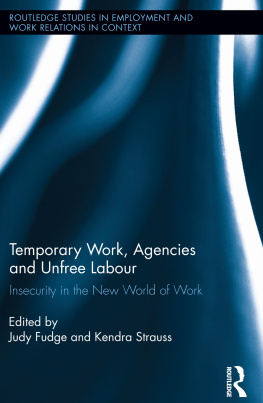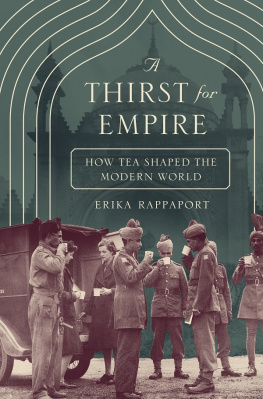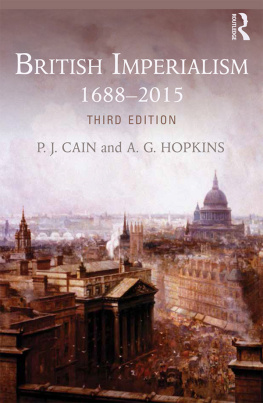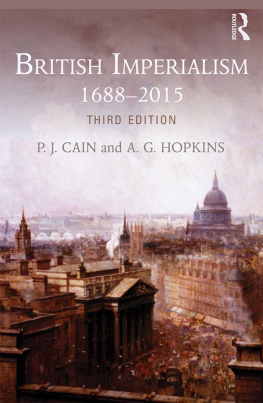

Published with assistance from the Annie Burr Lewis Fund.
Copyright 2015 by Yale University. All rights reserved.
This book may not be reproduced, in whole or in part, including illustrations, in any form (beyond that copying permitted by Sections 107 and 108 of the U.S. Copyright Law and except by reviewers for the public press), without written permission from the publishers.
Yale University Press books may be purchased in quantity for educational, business, or promotional use. For information, please e-mail (U.K. office).
Set in PostScript Electra and Trajan types by IDS Infotech Ltd.
Printed in the United States of America.
Library of Congress Cataloging-in-Publication Data
Swingen, Abigail Leslie.
Competing visions of empire : labor, slavery, and the origins of the British Atlantic empire / Abigail L. Swingen.
pages cm
Includes bibliographical references and index.
ISBN 978-0-300-18754-0 (cloth : alk. paper) 1. West Indies, BritishHistory17th century. 2. West Indies, BritishEconomic conditions17th century. 3. West Indies, BritishCommerce. 4. SlaveryWest Indies, BritishHistory17th century. 5. West Indies, BritishHistoriography. 6. ImperialismHistory. 7. West Indies, BritishHistory18th century. 8. West Indies, BritishEconomic conditions18th century. 9. SlaveryWest Indies, BritishHistory18th century. I. Title.
F2131.S94 2015
972.903dc23
2014027080
A catalogue record for this book is available from the British Library.
This paper meets the requirements of ANSI/NISO Z39.48-1992 (Permanence of Paper).
10 9 8 7 6 5 4 3 2 1

To Alan and Ruby

C ONTENTS

A CKNOWLEDGMENTS
The creation of a book over the course of several years always results in the accumulation of serious debts of gratitude. This project began as a dissertation at the University of Chicago under the guidance of Steven Pincus, John Brewer, Ted Cook, Tamar Herzog, and Ralph Austen. In addition, Allan Macinnes of the University of Strathclyde came to Chicago as a visiting professor in 2003 and kindly allowed me to sit in on his class on Jacobitism and has remained a stalwart supporter of the project. Their expert supervision helped guide the project from a haphazard proposal into a relatively coherent thesis. I particularly wish to thank Steve, whose guidance has not ceased and who has always made graduate advising one of his top priorities. I aspire to be half the adviser and scholar he is. I would also like to thank my mentors at Swarthmore College back in the 1990s, Pieter Judson, Tim Burke, and Marjorie Murphy.
An amazingly supportive community of scholars at the University of Chicago and beyond has helped shape this book in workshop settings, conferences, and informal arenas. At Chicago, Brent Sirota, James Vaughn, Lisa Clark Diller, Heather Welland, Chris Dudley, Fredrik Albritton Jonsson, Ryan Frace, Kathrin Levitan, Douglas Kanter, Michael Brillman, Craig Hargett, Lyman Stebbens, Gerry Siarny, Paul Cheney, Dan Riches, and Colin Wilder all sat through numerous chapter drafts in workshops and seminars and offered helpful suggestions and advice. Thanks also go to Josh Arthurs, Cam Hawkins, John Deak, Tania Maync-Daly, and Ben Nickels. I wish to thank scholars who have helped in other ways, by reading drafts of chapters or the entire manuscript, providing support while working in archives, or engaging in lively conversations. These include Rob Hermann, Phil Stern, Rupa Mishra, Carl Wennerlind, Nick Popper, Leslie Theibert, Megan Lindsay Cherry, Ted McCormick, Kristen Block, Ed Rugemer, Bill Bullman, Caroline Boswell, Will Pettigrew, Dan Carey, Dan Szechi, Tim Harris, Susannah Ottaway, and Rich Connors. I want to give special thanks to Brent Sirota and James Vaughn, who have continued to offer cogent scholarly advice and have contributed significantly to the shaping of the argument of this book.
This book has also been shaped by my experiences teaching at Auburn University and Texas Tech University. In particular from Auburn, I wish to thank Donna Bohanan, Ralph Kingston, Kathryn Braund, Kenneth Noe, Christopher Ferguson, Charles Israel, David Carter, Jennifer Brooks, Tiffany Sippial, and Tony Carey (now of Appalachian State University). At Texas Tech, I wish to thank Gretchen Adams, Zach Brittsan, Stefano DAmico, Barbara Hahn, Justin Hart, Karlos Hill, John Howe, Allan Kuethe, Randy McBee, Emily Skidmore, and Aliza Wong. I have had the pleasure to work with some fantastic graduate students from both institutions, and would like to thank Josh Barronton, Nick Faucett, Abby Sayers, Matt Kocsan, Robert Weaver, and Katie Snyder. Special thanks to Josh and Abby for their research assistance in the summer of 2009. I would also like to give thanks to my department chair at Texas Tech, Randy McBee, and to Nina Pruitt and Mayela Guardiola for their assistance navigating fellowship leave and other administrative hurdles. I also wish to thank the former vice president for research at Texas Tech, Taylor Eighmy (now of the University of Tennessee), and the former dean of the College of Arts and Sciences, Lawrence Schovenec (now provost of Texas Tech), for their support.
The completion of this book was made possible by the financial and research assistance from a number of institutions. Financial support from Texas Tech in the form of a Humanities Start-Up Grant in 2010 helped the research process tremendously. Spending the 20112012 academic year as a Barbara Thom Postdoctoral Long-Term Fellow at the Huntington Library was instrumental in providing me the time and resources necessary to complete the book. At the Huntington I learned from a wonderful community of scholars, including Lisa Cody, Heather Keenleyside, Heidi Brayman Hackel, Carla Zecher, Fran Dolan, Harry Stout, Peter Stallybrass, Elizabeth Allen, Will West, Emily Berquist Soule, Lindsey ONeill, Mark Hanna, Adam Arenson, Adrian Finucane, Heather James, Lori Ann Farrell, and Peter Mancall. I would also like to thank Roy Ritchie for his warm hospitality, Steve Hindle for his unwavering support of my project, and Juan Gomez and Carolyn Powell for their administrative assistance. That year I had the good fortune of also receiving the Frederick A. and Marion S. Pottle Short-Term Fellowship in 18th-Century British Studies from the Beinecke Rare Book & Manuscript Library at Yale University, which gave me the opportunity to round out research for the final two chapters. I wish to thank Stacy Smith at the Beinecke for her assistance. After completing my fellowship year, the College of Arts and Sciences at Texas Tech generously granted me a Returning Faculty Research Award to allow me the time to finish the book. I also wish to thank the people who work at the following libraries and archives: University of Chicago Regenstein Library; the British Library; the Institute of Historical Research; the National Archives in Kew; the Beinecke Rare Book & Manuscript Library; the Huntington Library; Auburn University Libraries; and Texas Tech University Libraries.
Versions of a number of the books chapters have been presented at conferences and workshops over the years, where I received helpful comments and feedback. These include the North American Conference on British Studies; the Western Conference on British Studies; the Midwest Conference on British Studies; the New World of Projects Conference of the Early Modern Studies Institute of the University of Southern California; the Institutional Perspectives on Early Modern Britain and Its Empire Conference at Yale; the Economies of Empire in the Eighteenth Century Conference at the Huntington; the British Historical Studies Colloquium at Yale; the British Scholar Conference at the University of Texas at Austin; the German-American Frontiers of the Humanities Symposium, sponsored by the American Philosophical Society and the Alexander von Humboldt Foundation; and the Southeastern American Society for Eighteenth-Century Studies Conference.
Next page
